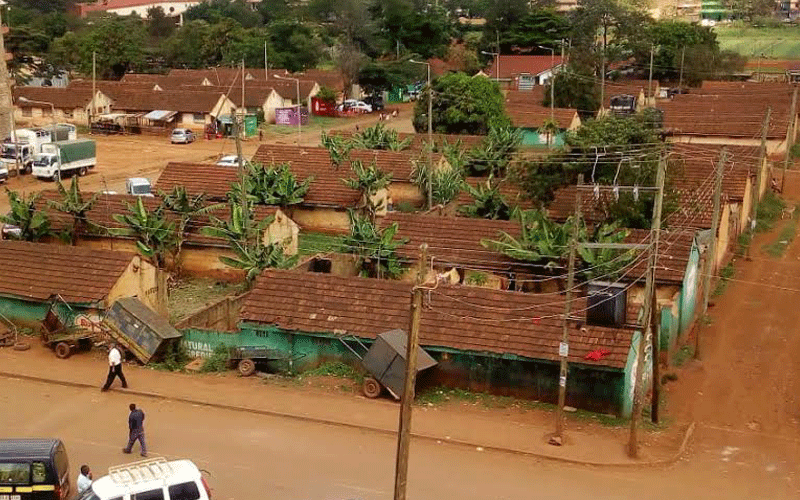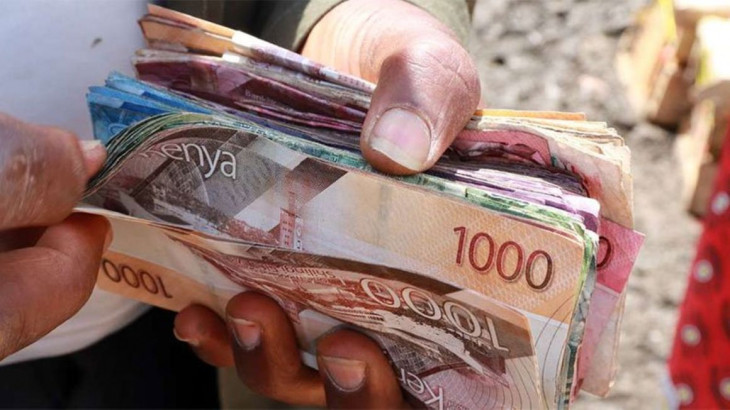Old Ruiru to paves way for new highrise flats

As a section of Kenyans ponder on the viability of the government’s affordable housing agenda, Kiambu county is racing against time to implement the quest that is geared towards improving housing conditions, especially for low-income earners.
The county has embarked on a multimillion project, which is hoped to reduce a housing crisis that has continued to plague the county, which hosts the highest population in the country after Nairobi county.
According to the 2019 Kenya Population and Housing Census, Kiambu county has an estimated population of 2.4 million residents and 795,241 households, followed by Nairobi which has 4.3 million residents, or 1,4 million households.
Governor James Nyoro announced that his government will next year kick off construction of high-rise houses at Majengo estate in Biashara ward, Ruiru constituency where staff from the defunct Kiambu Municipal Council have been staying.
About 200 currently derelict houses will be demolished to pave way for the construction that will kick off in next month.
“We are in talks with the Ministry of Housing and Urban Development and we look forward to construct 500 housing units bordering Ruiru stadium and the current Ruiru market,” he said.
In the quest to provide affordable housing to the people of Kiambu, governor Nyoro said that his government will leave nothing to chance in ensuring it explores solutions to better housing conditions.
The need for new and modern houses has been welcomed as a long overdue exercise with most of the expected beneficiaries rooting that the government hastens the process.
John Mumu, who has been living in one of the run-down houses says he is willing to move temporarily to pave way for construction of the houses, but urges the government to expedite the process to guarantee them a better stay.
Transparent process
“We have been living in these houses, their deplorable states notwithstanding,” said Mumu, adding, “As long as the process will be humane and transparent, we welcome the development that could see us improve our living conditions.”
Nancy Murugi, also an occupant in the current houses said that the new houses will accord them a better chance to enjoy life, in spite of their meagre earnings.
Kiambu County Assembly Chairman in charge of the Committee on Lands, Physical Planning, Municipality and Housing, Elijah Njoroge revealed that the county will soon roll out a similar project in Thika town.
“We will build high rise houses, which will be allocated to 200 people who have been living there first then the rest of the houses (300) will be sold to county staff and citizens of Kiambu county and proceeds from the sale will help us commence another housing project in Ruiru and Thika,” said Njoroge, who also doubles up as the Biashara ward Member of County Assembly (MCA).
He stated that the county will engage affected persons in a rigorous public participation exercise to enlighten them about the development.
The national and county governments have partnered to provide social and low-cost housing targeting citizens who earn between nothing and Sh15,000 and from Sh15,000 to Sh60,000 respectively.
The initial arrangement was that each county would develop at least 2,000 units per financial year beginning 2018/19 guided by need’s assessment.
However, the President Uhuru Kenyatta led flagship project remains an acid test owing to numerous challenges that have dogged the process.
Construction of at least 500,000 housing units across the country by 2022, is now a dream whose time is almost elapsing.
Continued rise of coronavirus numbers across the country has been cited as among the major stumbling blocks that continue to threaten realisation of the housing agenda.
This is as the country shifts resources to fight the killer virus that has so far killed hundreds and efforts to contain its spread lead to slowed economic activity.
Efforts by individual members of the public to independently put-up lowcost houses to beat the 250,000 units annual housing deficit have also been frustrated by the ailing economy.
Currently, local companies are only able to supply make an estimated 50,000 units, culminating in a housing deficit of two million units, or 80 per cent deficit.












